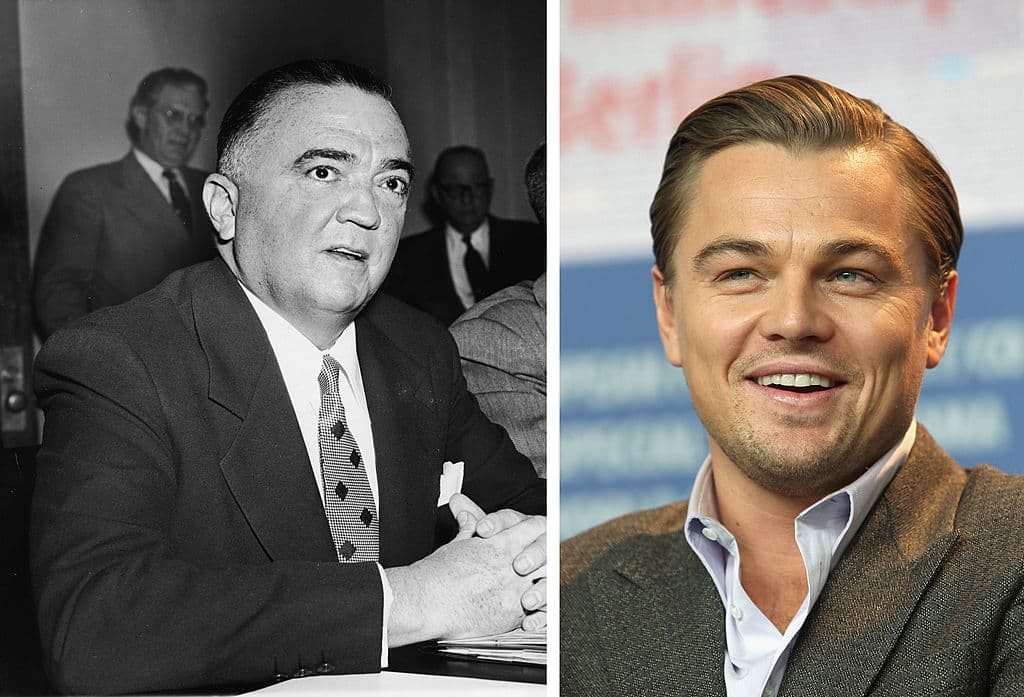Scorsese’s FBI Film, ‘Killers of the Flower Moon,’ To Hit Theaters as the G-Men Face Scrutiny
An epic ovation at Cannes stokes anticipation of a movie that is likely to resonate at another testing time for the Federal Bureau of Investigation.

Anticipation of Martin Scorsese’s film, “Killers of the Flower Moon,” is being stoked after drawing an epic standing ovation at the Cannes Film Festival. The movie tells a story of the FBI’s investigation of murders among the Osage Nation in the 1920s that’s sure to encourage discussion of the bureau’s role today.
The FBI website lists its official birth date as July 26, 1908, noting before that, “the Justice Department had no organized force of investigators to gather evidence,” so Washington had to hire outside detectives.
It was under President Theodore Roosevelt, though, that the formation of the FBI picked up steam. In the years after The Rough Rider’s death, in 1919, it came into its own, proving itself capable of investigating the murders of wealthy Osage citizens. This required the federal government to meet the challenge of murky legal jurisdiction on tribal lands.
The film is based on a book by the journalist David Grann, “Killers of the Flower Moon: The Osage Murders and the Birth of the FBI,” which recounts the investigation into the death, under suspicious circumstances, of members of the oil-rich Native-American nation in Oklahoma.
Messrs. Grann and Scorsese unfold the corruption, cover-ups, and deceptions. Their story focuses on a single Osage woman, Mollie Burkhart — played by a Blackfoot actress, Lily Gladstone — whose family members were murdered.

“In trying this case,” a special agent, Thomas White, wrote to the FBI director, J. Edgar Hoover, “we met every conceivable means of opposition,” describing the arrests of lackeys serving a cattleman and gangster, William Hale.
White, portrayed by Jesse Plemons, and Ernest Burkhart — Hale’s nephew, played by Leonardo DiCaprio — laid out the challenges the G-men faced in the pursuit of justice. It’s the exact role Roosevelt envisioned for the bureau.
Following success in the Osage case, the bureau’s power expanded under Hoover, and it engaged in such infamous acts as spying on the American Civil Liberties Union, the Supreme Court, and even, at the behest of the Kennedy administration, the Reverend Martin Luther King Jr.
Upon Hoover’s death in 1972, the disclosure of the extent to which the FBI had strayed from its mission caused citizens to recoil. Reforms were made, and the bureau worked to remove the taint of scandal.
Investigating acts of terrorism like the Oklahoma City Bombing and attacks on the World Trade Center restored the FBI’s credibility just as the Osage investigation had established it, but once again, the pendulum began to swing towards suspicion.
Last week, the four-year special council, John Durham, released a damning 300-page report that, as the Sun put it, “alleges a series of missteps by the FBI and Justice Department” as “investigators probed possible collusion between Russia and the Trump 2016 campaign.”
The FBI also meddled with Democrats during the 2016 election. Its director at the time, James Comey, inserted himself into the race at the last minute, laying out evidence against Senator Clinton, the Democratic nominee, while declaring that she should not be prosecuted.
Deciding who should be charged is not the FBI’s role, much less influencing who the next president will be. Although Mr. Durham didn’t uncover “the crime of the century,” as President Trump had predicted, he has documented the way it had abused the Foreign Intelligence Surveillance Court — whose first word limits it to the water’s edge — to spy on Americans.
“This report,” the FBI wrote in a statement, “reinforces the importance of ensuring the FBI continues to do its work with the rigor, objectivity, and professionalism the American people deserve and rightly expect.”
The FBI’s letter on Mr. Durham laid out the changes it has made, as the Sun reported, “including steps to ensure the accuracy of secretive surveillance applications to eavesdrop on suspected terrorists and spies,” and “stressed that the report focused on prior leadership.”
Noting that the FBI’s inspector general had uncovered much of the overreach Mr. Durham identified, the FBI insisted it had made reforms to address bipartisan concerns, but the question remains, as the Sun put it, “Will Durham’s Excoriation of the ‘Deficient’ FBI Lead to Meaningful Reform — or Fizzle?”
In any event, the ideal of an FBI focused on the pursuit of blind justice will be illuminated in “Killers of the Flower Moon,” showcasing law enforcement done right, but also providing a reminder that a federal badge comes with great power, including the power to corrupt.

